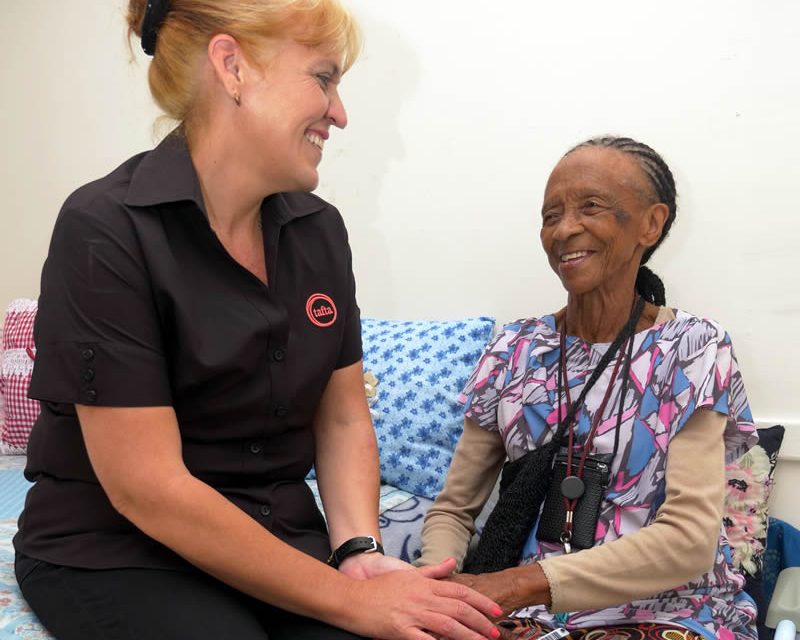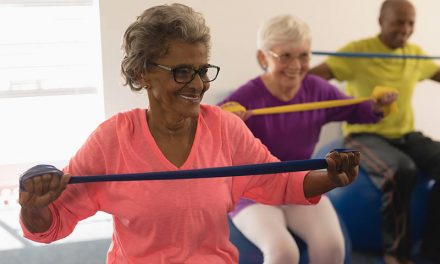What to look for in a carer
If you’re thinking of hiring a carer to look after an elderly relative (or yourself) at home, you’ll obviously check their qualifications and references. But there are other qualities that a good private carer needs. Qualities that cannot be taught. These are natural abilities that a person either has or doesn’t have. And they make all the difference.
What are the qualities you should look for in a carer, and why are they important?
1. Empathy
Good carers are able to understand and identify with the feelings of others. They care deeply about people and their well-being, and have a genuine desire to help alleviate distress and pain so their clients feel happier and more comfortable.
Because they are able to put themselves in someone else’s shoes, an empathetic carer will avoid upsetting your loved one by saying or doing things that make them feel embarrassed or ashamed. This is particularly important if they will be responsible for your loved one’s personal care – bathing them or helping them use the toilet.
However, just because they can identify with your loved one, doesn’t mean that they should presume to know what they are feeling. This is where respect and empathy intersect.
2. Respect
Having to rely on someone else to do the things you normally do for yourself makes most people uncomfortable. A good carer understands that her (or his) client feels embarrassed or vulnerable, and acts in a professional, respectful manner.
Being respectful means not discussing your loved one with you as if they weren’t there. Even if the elder is living with Dementia and appears not to be following the conversation, it’s rude to speak as if they cannot hear you.
A respectful carer will not use offensive language (derogatory expressions or swear words), or express opinions you may not agree with – e.g. religious convictions. This respect will extend to your home and your possessions; they will neither envy, nor look down on, what you have.
3. Patience
Patience is an essential trait in anyone involved in elder care. The presence of chronic conditions may hinder an elder to respond and move as quickly as they would like.
Many carers will answer for their clients, rather than allowing them time to speak for themselves. Or do things for them that they would prefer to do themselves, because it’s quicker. But this further adds to your loved one’s sense of helplessness, and he or she may entirely give up on trying to communicate with others.
Look for a carer who understands how important it is to support elders to be as independent as possible – and who has the patience to wait for them to speak or act.
This is even more important if your loved one is living with Alzheimers or Dementia. It’s all too easy to lose patience and snap at someone who constantly repeats themselves, or asks the same questions over and over again. But this is not the reaction you want from your carer. They should be well aware that this happens when a person has Dementia. And they should be able to respond with unfailing patience, kindness and respect.
4. Reliability
Being able to rely on your carer to arrive when they say they will is crucial. Most people have a daily routine, which will be upset if the carer doesn’t arrive in time to help them get up, or prepare a meal for them.
There may be other people living in the home, who will be inconvenienced if they can’t leave on time for work because their loved one can’t be left alone and the carer turned up late. Being reliable is also a form of respect.
5. Cheerfulness
There are some people who have the knack of making you feel better just by being around. This is the kind of person you want to look after you, or your parents, at home. Cheerfulness and positivity play a huge part in someone’s well-being. You want to be greeted with a smile and a cheerful attitude, because it brings out the best in you.
Elderly people, especially those suffering from arthritis or other painful conditions, can be short tempered and uncooperative. But they are more easily won over and soothed by a carer with a sunny disposition.
6. Observant
Your carer will probably spend a lot of one-on-one time with your loved one. So, she (or he) is more likely to notice anything out of the ordinary. For instance, good observation skills can prevent a pressure sore from developing. An observant carer will also notice things like the elder’s meal or tea have been left untouched – and take steps to prevent dehydration and malnutrition.
Observant carers can even save lives by noticing and reporting unusual signs and symptoms, so that health conditions are recognised and treated in time.
Even if you know what to look for in a carer, how do you know the person you’re interviewing has these qualities? If possible, invite them to meet your loved one and watch how they interact with him or her. Ask for references and check with previous employers to make sure they are truthful.
Find out about Tafta’s Home Based Care service or call our Intake Social Worker on tel. 031 332-3721. A nurse will visit to assess your needs and discuss the service.






 From Durban Social Worker to Global Champion for Older Persons: Femada Shamam Leads the Way in Ageing
From Durban Social Worker to Global Champion for Older Persons: Femada Shamam Leads the Way in Ageing Christmas joy – thanks to you!
Christmas joy – thanks to you! Robin Hood Foundation spreads love across Tafta Homes
Robin Hood Foundation spreads love across Tafta Homes 12 Days of Giving – spread joy to older people this Christmas
12 Days of Giving – spread joy to older people this Christmas Tafta resident pens powerful tribute to heritage and hope in new book
Tafta resident pens powerful tribute to heritage and hope in new book Introducing TEAL – our upgraded national Elder Abuse Helpline
Introducing TEAL – our upgraded national Elder Abuse Helpline Beat the year-end blues – 6 tips for staying positive during ‘silly season’
Beat the year-end blues – 6 tips for staying positive during ‘silly season’ Wisdom on ageing – the most exquisite chapter
Wisdom on ageing – the most exquisite chapter Thriving through 2025 – a toast to life
Thriving through 2025 – a toast to life ‘Human Forever’ inspires Durban audience
‘Human Forever’ inspires Durban audience